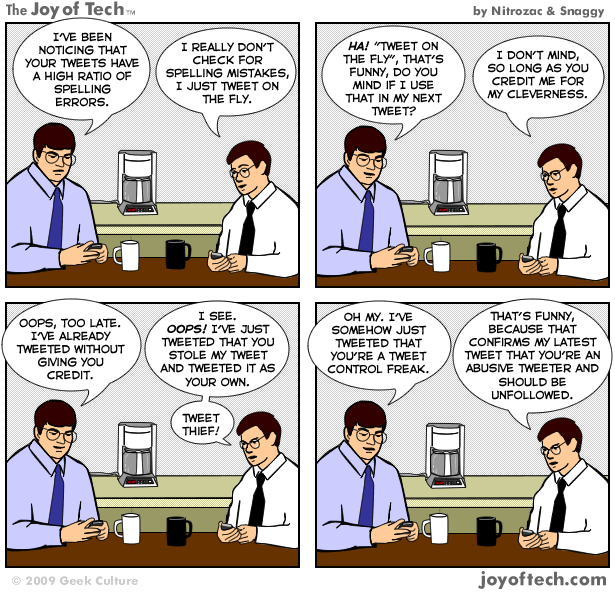This is about creating a site that lets people submit news and links and let visitors vote on which should gain the most visibility. It's a way of building a community around a topic of significance.
Many hosts will set this up for you in literally seconds (free: it's open source) with a one-click install (typically of Pligg). You can use a site like this as a step beyond blogging, where you submit synopses on topics of interest, and link to sites with news or information.
Recommendation on how to start:
Install Pligg, then upgrade to Drupal with Drigg if you get popular. Drigg (in early 2008) will import your Pligg data.
If you're more savvy, start with Drigg running on Drupal. Here's an excellent site built with Drigg running on Drupal. I could provide a lot of the competing recommendations on this, but I decided instead to cut to the chase. I did several hours of research. Your main choices appear to be:
There are
lots of other choices as well, these are the main ones. Summary: Pligg is buggy but widely available as a one-click install,
Joomla not enough useful modules for this purpose and more challenging to customize compared to Drupal (though Joomla is a little easier "out of the box").
Why use Drupal?
Drupal is also one of the
best documented open-source projects out there, won
an award for Overall 2007 best Open Source CMS, was
overall winner of the Webware 100 Awards, etc. Also, Drupal is an old-timer;
Drupal began just as the internet was heating up. Drupal is
more secure than WordPress (for comparison).
Okay, who am I kidding?
Wordpress is hacked and hacked. Because it's
too popular, and follows what is essentially an insecure upgrade process. Automatic (the name of the group that provided Wordpress developers) don't provide bug and security patches for previous releases --Drupal does. Upgrades often break or change things, and need to be tested first (and users need training on changes), so security patches need to be provided for previous versions. Updates affecting users need to be in addition to security patches that let technicians secure the software without affecting users or plug-ins. Wordpress needs to leave the Update or Die philosophy. You can
harden Wordpress against attack, but it's a lot of work.
Plus, who wants to fail when they become a success? Drupal can handle your site and community becoming as successful as you can imagine. (If you start small, never grow and then give up--it really doesn't matter where you start.) Drupal powers major sites such as:
- United Nations
- Warner Bros
- Discovery Channel
- AOL
- Sony
- NATO
- MTV UK
- BBC
- the Onion
- NASA
- Greenpeace UK
- New York Observer
There are books written about using Drupal too. You can
read excerpts from books about Drupal at Google Book Search. Here are many
examples of sites using Drupal, an
even larger list of sites, and information about
using Drupal in academia.
Comparing Drupal to Joomla
Here's two detailed
comparisons of Joomla vs. Drupal from late 2007 (here's the second
Joomla-Drupal comparison). Here are some quotes I found around the web:
"Drupal, [is for] web sites that are "highly dynamic" in nature, "community-driven," with lots of interaction. Whereas Joomla is for what he calls "brochure web sites", that are more static in nature (less dynamic)."
"Joomla provides a good first impression, which tends to wane as you dig deeper into the program. Drupal is just the oppsite. It provides a poor first impression ("
initially left a bad taste in my mouth"), yet becomes more appealing the deeper you dig."
"1. Drupal is a 'developer's' CMS. You'll find that the Drupal community is packed full of php geeks, but you'll rarely find good designers. That's because Drupal offers incredible possibilities in terms of what you can do with modifying the code. Less designers involved means less beautiful themes...and as a designer, myself, I too find this frustrating. My solution has always been: just build your own themes.
2. Joomla is easier to use, involves less coding, and is more popular than Drupal. This means that coders don't flock to it...but designers do. This fact yields more beautiful stock themes because there's more designers working on the project, and it's a bigger market for them to work in. "
Comparing Drupal to Pligg
Here are few quotes from around the web that I found useful:
August 12th, 2007
Drupal has already modules to set up a social news /bookmarking plattform and it is great! We tested pligg but it was too buggy. No problems with Drupal.
April 18th, 2007
You can install Drupal (as a designer or non-programmer) and have a feature rich site in under an hour. Developing for Drupal takes me less time than fixing the issues in Pligg that managed to escape testing. I’ve been working with Drupal long enough now to jump into developing my own modules and features quickly.
The downside? Drupal requires learning, experience and clean PHP development. You don’t just install Drupal and start coding.
April 20th, 2007
Unfortunately, we soon found out how beta Pliggs code truly was and ended up having to almost completely rebuild the way pligg handled voting, searching, tag handling, URLs, live viewing, tag clouds, multimedia and stories. Some of these issues revolved around Pliggs inability to support usernames with spaces, something VBulletin allows. Our implementation authenticates using the VBulletin system so many functions that display the username had to be tweaked in order to allow for spaces.
It is of no fault of Pliggs and we would still recommend the software to anyone that simply wants to clone diggs features. In fact the crew over at pligg.com are constantly adding new feature sets and fixing bugs so I’m sure it is only a matter of time before they release a truly stable and semantic version.
Our biggest struggle was with Pligg and its instability. Running a few releases of the Pligg beta proved to be a large amount of work when it came time to update to a later revision. All of our code had to be migrated (in some cases line-by-line) because of the dramatic changes. In the end, old bugs were fixed but new bugs arrived that we had to handle.
What else can you do with Drupal?
At last count, there were almost 3,500 modules in over 30 categories.
One of my favorite modules is
CiviMail, which provides
advanced mailing list management. This is an example of how there is powerful free software you can only use when operating on a CRM platform such as Drupal--you can buy standalone software to do this, but there is nothing else as powerful that is free without using Drupal.
Beyond modules in categories you'd expect to find (at bottom) there are categories such as:
- Organic Groups
- Evaluation/rating
- Event
- Location
- Commerce / advertising
- Mail
- Media
- Syndication
- Community
.. and expected categories such as Developer, Import/export, Javascript Utilities, Paging, Administration, CCK, Content, Content display, Filters/editors, Multilingual, 3rd party integration, RDF, Search, Security, Taxonomy, Theme related, User access/authentication, User management, Utility, Views, e-Commerce, and File management.
Read more!




































































